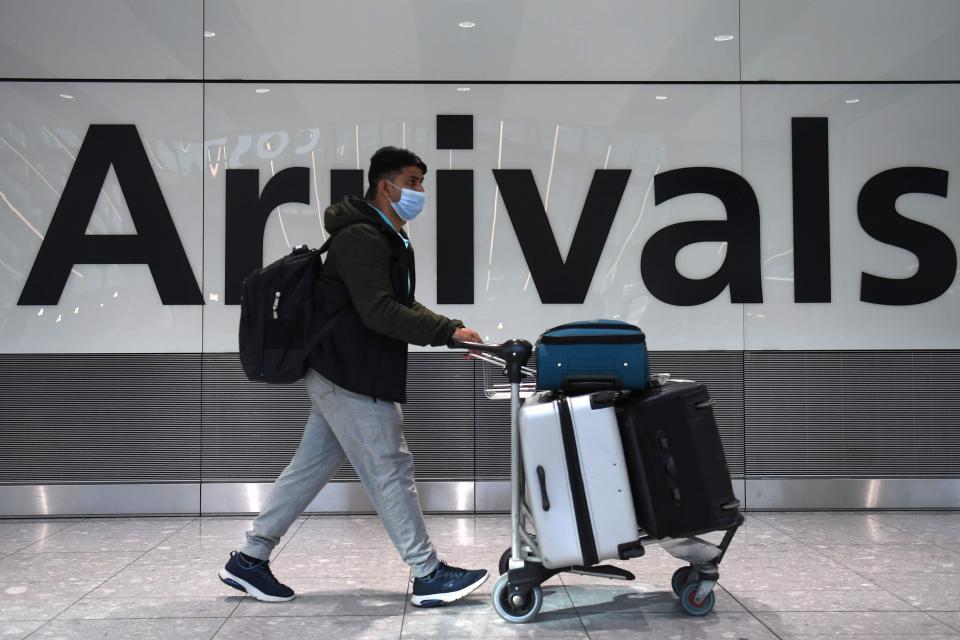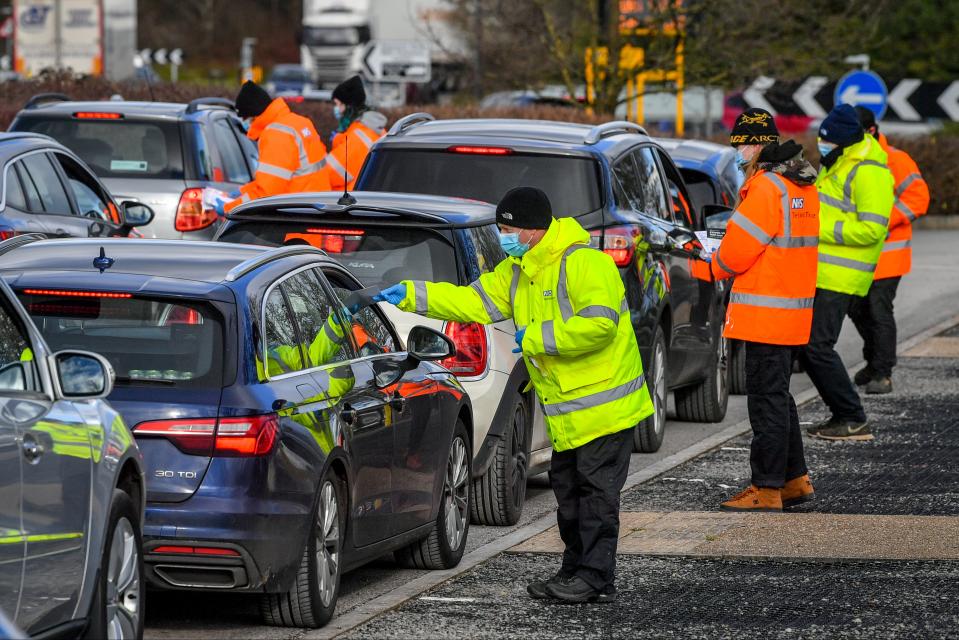How did the Brazilian Covid-19 variant enter the UK? Key questions answered on border rules for travellers

Concerns about border rules have intensified after the first cases of the Brazilian variant were detected in the UK.
It was revealed on Sunday that six cases of the new Manaus variant of coronavirus, which is more contagious and may be more resistant to vaccines, have been found in Britain, three in England and three in Scotland.
Two were confirmed in South Gloucestershire but the third English case has not been located and could be anywhere in the nation, with PHE saying the person did not complete their test registration card so their contact details are absent.
The Prime Minister claimed the Government “moved as fast as we could” to launch its quarantine hotel policy.
But concerns have been raised about the UK’s border controls.
Here we take a look at how the Brazilian variant spread to the UK:
How did the cases arrive in the UK?
The identified cases involved people flying from Brazil to the UK via Paris or Zurich.

Some people believe arrivals from Brazil should have faced tougher measures earlier than they did, including the requirement to quarantine in a hotel.
When did we know about the Manaus variant?
The variant was detected in Brazil and in travellers from Brazil to Japan in January.
It is linked to a surge of cases in Manaus late last year.
Scientists are conducting analysis to establish if the variant has a higher mortality rate or if it affects the vaccines or treatments at all.
Like the South African variant, the Brazilian one carries a mutation in the spike protein called E484K, raising concerns that vaccines may not be as effective against it.
What was the Government’s initial response?
Direct flights from Brazil to the UK have been banned since January 15.
But UK nationals or residents have continued to be allowed to return via indirect routes as long as they quarantine for 10 days.
Initially there was no mandatory testing on arrival. Arrivals were allowed to travel to their home or another location to begin their self-isolation.
It is likely that many people made this journey on public transport, mixing with the general population.
How does the quarantine hotel system work?
The requirement to enter a quarantine hotel was introduced on February 15.
Since that date, arrivals have also been required to take a coronavirus test on days two and eight of their self-isolation period.
The rule applies to UK and Irish nationals, and UK residents, returning to the UK from a country on the “red list”.
This is a list of 33 countries deemed at high risk of coronavirus variants, which includes all of South America, southern Africa, Portugal and the United Arab Emirates.
The full list can be found here.
What are people saying about the Government’s response?
Labour leader Sir Keir Starmer said the discovery of the Brazilian coronavirus variant in the UK shows the Government has not “secured our borders in the way we should have done”.
Speaking at a virtual meeting with Welsh businesses to mark St David’s Day, Mr Starmer said: “It demonstrates the slowness of the Government to close off even the major routes, but also the unwillingness to confront the fact that the virus doesn’t travel by direct flights.
“We know from last summer that a lot of virus came in from countries where it didn’t originate in, but people were coming indirect, and that’s the way people travel.
“I still think we haven’t secured our borders in the way we should have done, and the sooner that’s done the better.”
Labour MP Yvette Cooper, who chairs the Home Affairs Select Committee, said the situation highlighted “gaps” in the system.
She told the Today programme that the Government should be “learning lessons” from countries such as South Korea, that have extra precautions including testing of arrivals at airports.
Former health secretary Jeremy Hunt has said the discovery of six cases of the Brazilian P1 variant of the coronavirus in the UK showed the need for tighter controls.
“Absolutely we have got to look at what has gone wrong,” he told BBC Radio 4’s The World at One programme.
“It shows that it needs to be tightened up still further because if we are going to protect the road map out of lockdown then the name of the game is going to be stop new variants coming in, some of which may end up being immune to the new vaccines.
“Where we need to get to is a much, much more thorough combination of test and trace and genetic sequencing so we are not just testing the people who have been near someone who tested positive, but we also are working out where the original infection happened and which variant it is.
“You can only do that if you bring the cases right down.”
What is the Government saying?
Vaccines minister Nadhim Zahawi insisted that the UK’s border controls are “pretty stringent”.
He told BBC Radio 4’s Today programme: “Even countries that had hotel quarantine, like Australia, still have to deal with the variants actually challenging them in the same way they challenge us.”
Boris Johnson also defended the Government’s measures to prevent new variants being imported into the country.
He told reporters on Monday: “We have got one of the toughest border regimes anywhere in the world for stopping people coming in to this country who may have variants of concern.”

Asked if the Government was too slow to implement quarantine hotel measures, the Mr Johnson said: “I don’t think so, we moved as fast as we could to get that going.
“It’s a very tough regime – you come here, you immediately get transported to a hotel where you are kept for 10 days, 11 days.
“You have to test on day two, you have to test on day eight, and it’s designed to stop the spread of new variants while we continue to roll out the vaccination programme.
“We don’t have any reason at the present time to think that our vaccines are ineffective against these new variants of all types.”
Reporting by PA Media.
Read More
Expert compares hotel quarantine system to sieve with too many holes
Quarantined tourists must pay extra £1,200 if positive for Covid-19
Travellers in Scotland quarantine hotel told to leave after one day

 Yahoo Sport
Yahoo Sport 





































